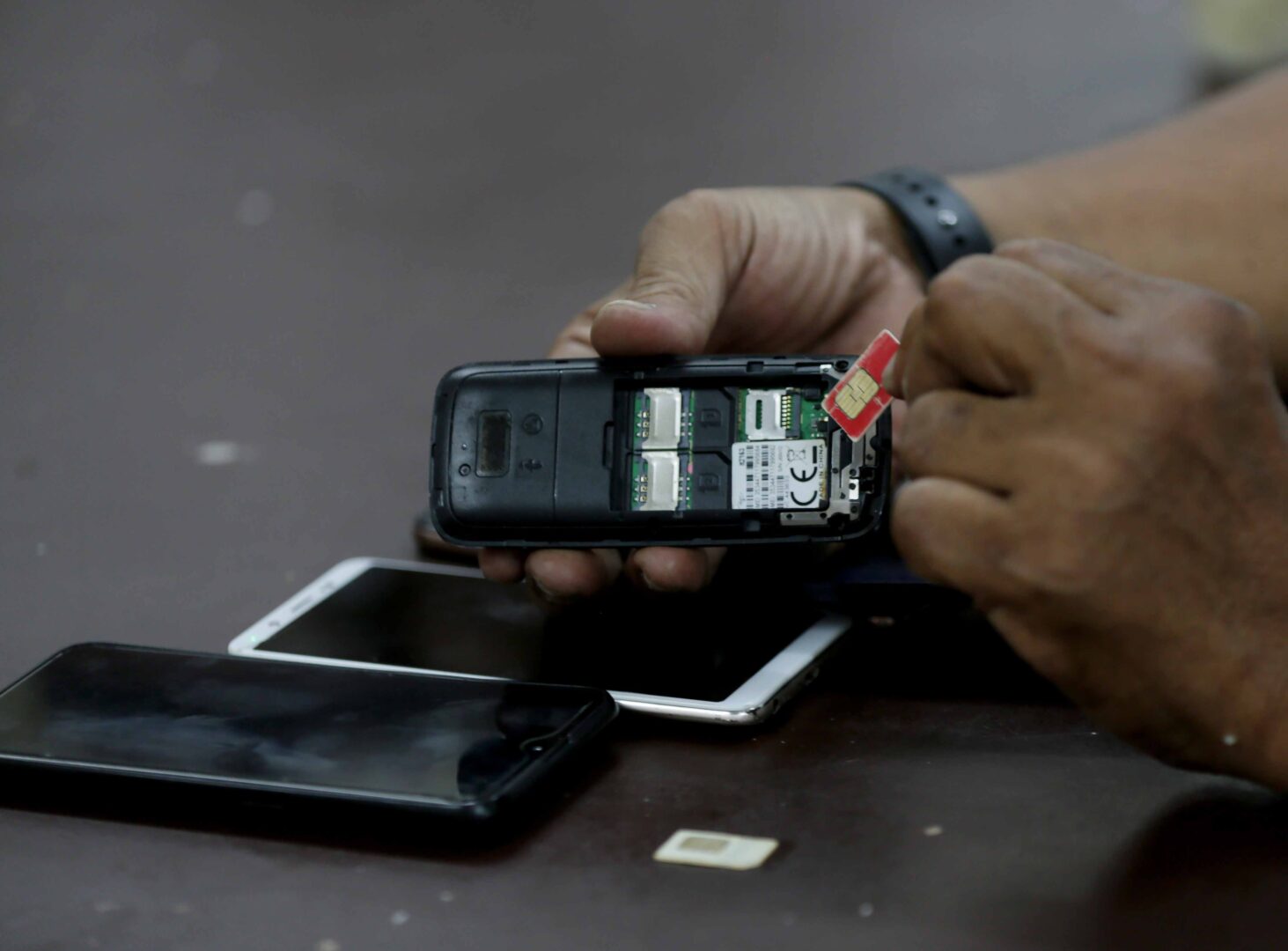President Ferdinand “Bongbong” Marcos Jr. on Monday signed the Subscriber Identity Module Card Registration Act into law in a bid to stop spam and the proliferation of text scams.
This means SIM card users are now required to present a valid identification document with a photo to all public telecommunications entities or direct sellers for registration.
It is the first-ever legislation that Marcos enacted, three months after he assumed the presidency.
In his speech, the President stressed that the signing of this law demonstrates that the administration is setting the tone that his national policy is to ensure that technology shall only be used to improve our people’s lives.
The newly-signed Republic Act 11934 seeks to promote accountability in the use of SIM cards and track perpetrators of crimes committed through mobile phones.
“With the signing of this act, we will finally achieve what has long been overdue, an effective means of regulating the issuance of sim cards to curb the spread of spam text messages and scams,” he said.
“We will soon be able to provide law enforcement agencies with the tools needed to resolve crimes perpetrated with the use of these SIM Cards, as well as providing a strong deterrence against the commission of wrongdoing,” he added.
Under the measure, telecommunications entities are required to maintain a SIM Card Register of their subscribers and the information that will be acquired through the said registration will be treated as “absolutely confidential” unless users authorize access.
Telecommunications firms, meanwhile, are directed to disclose the full name and address of the SIM card users upon a duly issued subpoena or court order.
They are also required to submit a verified list of their authorized dealers and agents nationwide to the National Telecommunications Commission, with updates every quarter of the year.
“Failure to comply results in the grant of authority for telecommunications entities to automatically deactivate services to the specific SIM card subscriber under the force of law,” Marcos warned.
“The use of false or fictitious information, the use of fictitious identities, and the use of fraudulent documents or identifications to register a SIM card shall also be dealt with by appropriate penalties,” he added.
Law enforcement agencies conducting probes on crimes committed through mobile phones may submit a written report to telecommunication firms for access to information on SIM card registration.
The Chief Executive commended legislators from the House of Representatives and Senate for coming up with the law, which for him is “timely and necessary.”
“Truly, the legislation is going to be welcomed by many of our people, especially now with reports of the commission of various crimes using mobile phones, including the proliferation of text scams and spam,” Marcos said.
Solons laud signing of SIM card law
House Speaker Martin Romualdez commended Marcos for signing into law the Subscriber Identity Module Card Registration Act meant to safeguard the public from falling victim to scammers and identity thieves.
Romualdez, the principal author of House Bill 14, expressed appreciation to Marcos, noting that this is the first bill he has signed into law since taking office on 30 June.
The SIM Registration Act, which shall be known as Republic Act 11934, was signed into law by the Chief Executive just a week after Romualdez and Senate President Juan Miguel “Migz” Zubiri signed the enrolled bill on the measure.
According to Romualdez, Marcos’ signature on this essential piece of legislation only signifies his administration’s recognition of the need to put measures in place to protect Filipino consumers against cybercriminals and online scammers.
Edjen Oliquino
@tribunephl_eao
